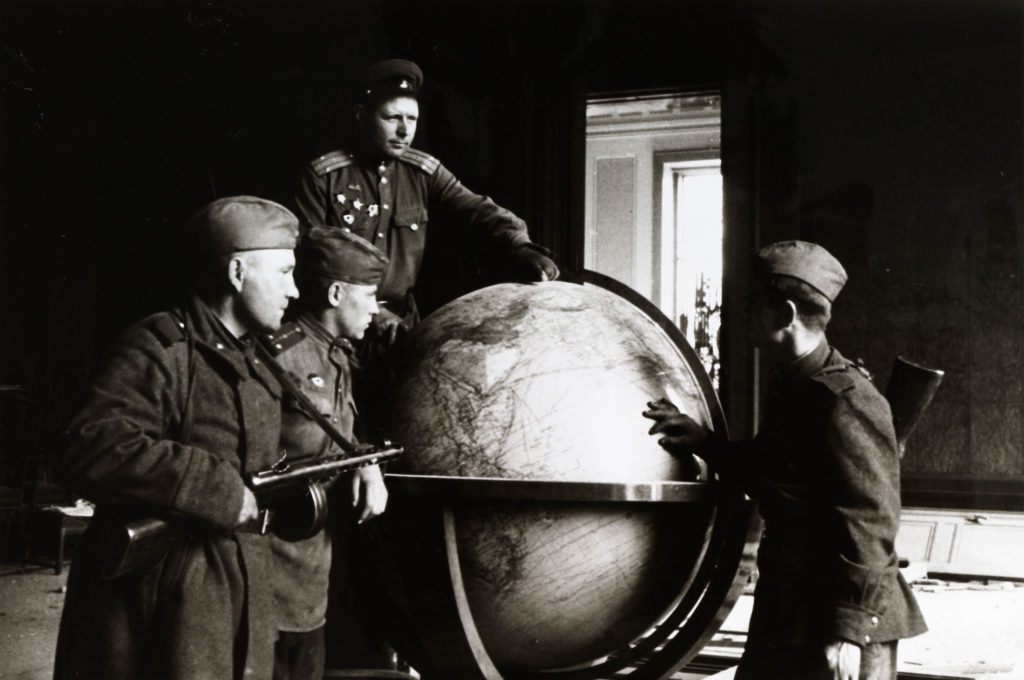19 & 20 June 2014
Co-hosted by Contemporary European History

The workshop has three main aims.
First, it attempts to identify the participants and stakeholders in debates about internationalism, going beyond the self-declared liberal elites who have featured so heavily in the existing literature. The workshop aims to shed light on who these (inter)national agents were, and why, when, and with what results they argued that some form of internationalism was practicable, necessary, or unavoidable.
Second, by looking at these agents through the prism of internationalism, the workshop seeks to bring into focus alternative chronologies and periodizations of European history. We wish to revisit and revise the by now standard narrative of internationalism’s rise, decline and rise – from its rediscovery in the aftermath of the First World War, and a new enthusiasm for international institutions in the subsequent decade; to its spectacular failure in the era of protectionism, racial conflict and the destruction of the international architecture; to its triumph in the second post-war era; and, after the worst of the Cold War freeze, the flourishing of a new global era in the 1970s. We wish to re-examine variations of this narrative, and recover nuances and pinpoint different trajectories for different international projects.
Third, the workshop seeks to foreground Europe’s place in the history of internationalism. We are particularly interested in how international cooperation has evolved within European nation-states, and how concepts have differed within different parts of Europe and European peripheries.
Each panel examines one group with international connections and identify continuities and disjunctures in the appeal and application of different internationalist programmes and agenda.
Programme
Thursday, 19 June 2014
10.00 – 10.30 Welcome and opening remarks by Jessica Reinisch
10.30 – 12.30 PANEL 1: Refugees – chair: Johanna Conterio (Birkbeck)
Matthew Frank (Leeds), The Dark Side of Internationalism? Population Transfer as a Pan-European Idea
Isabella Loehr (Basel), The Global Entanglement of National Emergencies: The Invisibility of Transnational Support Networks for Refugee Scholars in the 1940s
Tara Zahra (Chicago), Female migrants and refugees as agents of Internationalism?
Peter Gatrell (Manchester), Owning and Disowning Refugees in the Twentieth Century: what was at stake, and for whom?
12.30 – 1.30 Lunch
1.30 – 3.00 PANEL 2: Relief workers – chair: Pamela Ballinger (Michigan)
Daniel Maul (Giessen), Between collective security, humanitarian interventionism and ‘spiritual internationalism’: The Quaker’s relief mission in the Spanish Civil War 1936-1939
Eleanor Davey (Manchester), Campaigning for change: Médecins Sans Frontières and the LSF Foundation
Bertrand Taithe (Manchester), Expatriate Humanitarian Workers and European Internationalism
3.00 – 3.15 Tea break
3.15 – 4.45 PANEL 3: Collaborators – chair: Ana Antic (Birkbeck)
Marius Turda (Oxford Brookes), Reluctant Internationalists: Latin Eugenicists in Europe, 1918-1939
Aristotle Kallis (Lancaster), Working for the Axis: fascism and internationalism during WW2
Bradley Moore (Wisconsin), Oblique Internationalism: Western Medicine and the Eastern Bloc during High Stalinism
4.45 – 6.15 PANEL 4: Women – chair: Daniel Laqua (Northumbria)
Christine von Oertzen (Max Planck, Berlin), Whose World? Internationalism, Nationalism, and the Struggle over the ‘Language Question’ in the International Federation of University Women, 1919-1932
Celia Donert (Liverpool), Women, Communism, and Internationalism after World War II
Helen McCarthy (QMUL), Feminism, Internationalism and Diplomacy: The British Foreign Office and International Women’s Year, 1975
Friday, 20 June 2014
10.00 – 11.30 PANEL 5: Children – chair: Dora Vargha (Birkbeck)
Michal Shapira (Tel Aviv), Psychoanalysts as Agents of Internationalism: Mental Health Ideas on the Child and Rebuilding Democracy in the Postwar Period
Joëlle Droux (Geneva), A Pawn or a Priority? Transnational Child-Welfare Programmes and Movements in the Wake of World Wars (1919-1949)
Heide Fehrenbach (Northern Illinois University), Children as Casework: International Social Service and Global Norm-Making
11.30 – 11.45 Tea break
11.45 – 1.15 PANEL 6: Soldiers – chair: Heather Jones (LSE)
Alexander Watson (Goldsmiths), Managing an ‘Army of Peoples’: Everyday Life and Command in the Habsburg Army, 1914-18
Ben Shephard (Bristol), Reluctant Internationalists: the British Military and UNRRA, 1945-1950
Nir Arielli (Leeds), Can transnational war volunteers be considered (reluctant) internationalists?
1.15 – 2.15 Lunch
2.15 – 3.45 PANEL 7: ‘Experts’ – chair: Katharina Rietzler (Cambridge)
Katharina Kreuder-Sonnen (Bonn), From Transnationalism to Olympic Internationalism: Polish Medical Experts in the First Half of the 20th Century
Nick Baron (Notthingham), Internationalist Impulses and Transnational Interactions in Soviet Cartography under Lenin and Stalin
Erez Manela (Harvard), Targeting Smallpox: Expert Networks, International Politics, and Transnational Governance in the Postwar Era
3.45 – 5.00 Closing panel: Europe in the world
